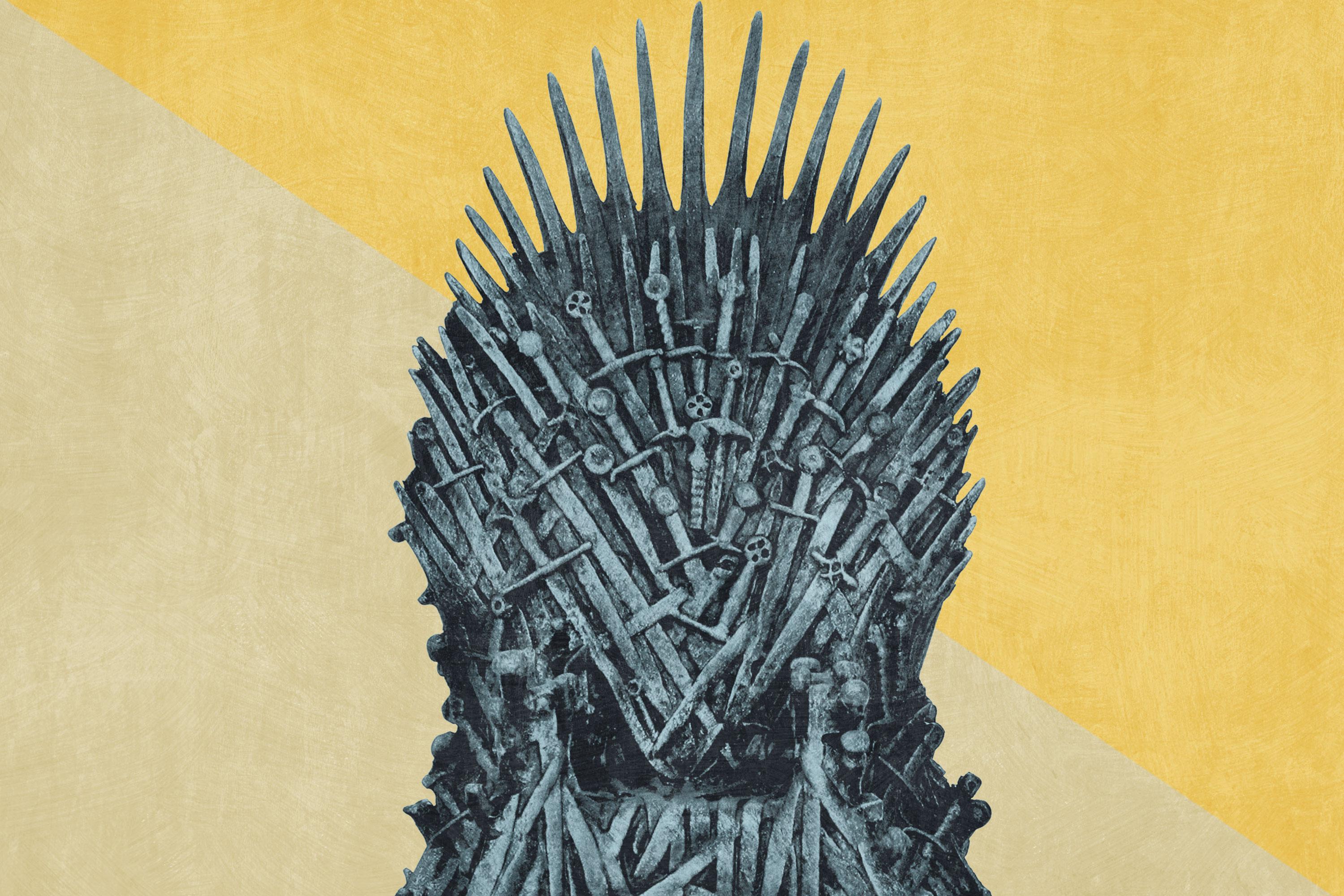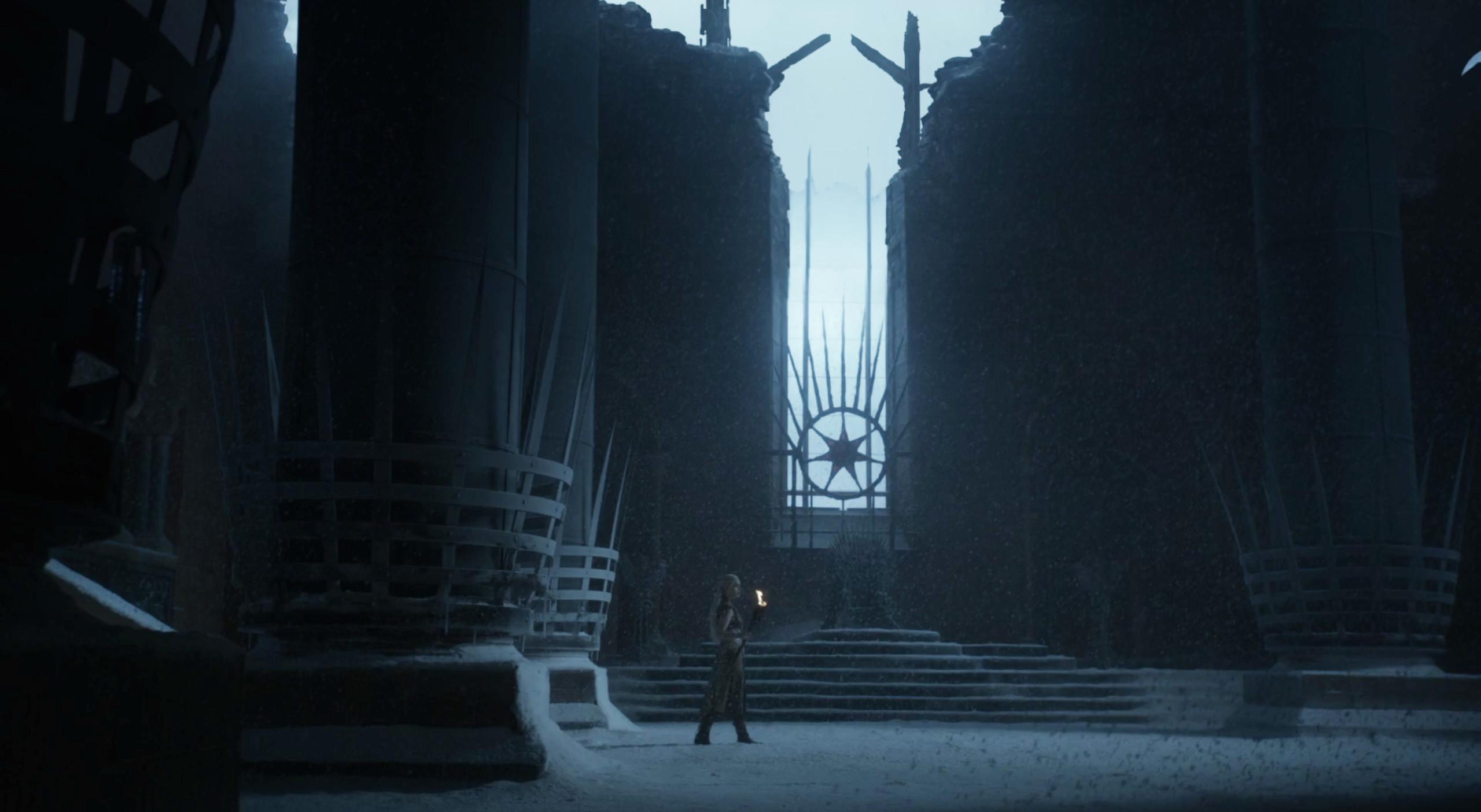‘Game of Thrones’ Loose Ends: Who Will Win the Iron Throne?
And what will that person do once they have it? Daenerys once said she wanted to “break the wheel,” but can Westeros maintain any system of government that isn’t rooted in monarchy?
Game of Thrones returns today! And 35 days from now, Thrones will end. In less time than it seemingly takes Littlefinger to zip around to every corner of Westeros, showrunners David Benioff and D.B. Weiss will deliver a conclusion to the story George R.R. Martin first introduced 23 years ago—and in that precious time they’ll have to answer half a hundred pressing questions: Who will live? Who will die? Who will tell Jon he’s doing it with his aunt?
Separate from those series-shaping questions are countless smaller but still crucial details that the show may or may not explore in the final season. These are Thrones’ loose ends: the characters, places, events, prophecies, and more that the story has made audiences wonder about over the past seven seasons but has yet to satisfyingly wrap up. In the run-up to the final season’s April 14 premiere, we’ll be digging through these loose ends, looking at why they matter and how they could affect the endgame as we count down the days to Thrones’ long-awaited conclusion.
The Loose End
Of all the theories, ideas, and questions Game of Thrones has raised since its inception, one (that is right there in the title of the show itself) has always loomed over everything: Who will win the game of thrones?
There is no shortage of options. Daenerys Targaryen has lusted after her father’s chair for nearly her entire life, and she has more strength behind her than anyone else. Then there’s Jon Snow, who is a reluctant but competent leader and was seemingly chosen by the Lord of Light for a greater purpose. Those two may also soon have a child together, and that kid could grow up to inherit the Iron Throne.
Bran Stark is the current betting favorite, as theories about him being the Night King have spread across the internet. His sister, Sansa, may be the most competent contender, as she still possesses her full range of empathy despite her time spent in King’s Landing and the hardships that have followed. As the only living offspring of Robert Baratheon, Gendry could claim the throne. Yet anyone who wants to rule will have to unseat Cersei, the current crowned ruler of the realm, and the sellsword army at her back.
Fans have also speculated about major characters like Arya, Tyrion, Sam, and Jaime. There are more obscure candidates, too, including Davos, Brienne, Varys, and Bronn. Hell, even Littlefinger has a theory for himself despite his vicious death in Season 7.
Of course, there is another possibility, too, one that the books and the show have hinted at since the beginning of the series: that there is no throne at the end of Game of Thrones. That theory holds some water—after all, when George R.R. Martin set out to write this story more than two decades ago, he titled only the first book A Game of Thrones. The series as a whole is called A Song of Ice and Fire—the throne itself was never meant to define the entire story.
So what will happen when (if?) the White Walkers are defeated and the dust settles in Westeros?
Why This Loose End Matters
The question of who will win the game of thrones is about much more than who will sit on Aegon the Conqueror’s metal chair at the end of the story. It’s about what kind of system of government will emerge at the end of the series; what Westeros will look like after the great remaining battles end. At its core, it’s a question that asks: What values will this story leave us to hold onto in the end? How will the “winner”—and the system they put in place—shed light on Martin’s ultimate vision?
How Season 8 Could Address It
Since the story opened, eight different people have held or claimed the Iron Throne: Robert Baratheon, Viserys Targaryen, Daenerys Targaryen, Stannis Baratheon, Renly Baratheon, Joffrey Baratheon, Tommen Baratheon, and Cersei Lannister. That doesn’t even include all the other monarchs who have claimed some form of absolute power elsewhere: Robb Stark, Balon Greyjoy, Mance Rayder, Euron Greyjoy, Yara Greyjoy, and Jon Snow. Even the leader of the White Walkers is stylized as King. Game of Thrones, therefore, has certainly lived up to its name.
But there have been hints that Thrones isn’t actually about the throne. In Season 2, at the House of the Undying in Qarth, Daenerys sees several visions that could foreshadow her future, including one where she walks into a destroyed throne room that is covered in snow:

Like so many visions and prophecies on Thrones, this one is not clear. Could the snow falling represent Jon Snow? Or the Night King? Or is this a vision of a larger doom that portends the destruction of the Iron Throne itself and Westeros’s long-standing monarchical system of government along with it?
Daenerys has flirted with radically upending the established order in Westeros, famously saying to Tyrion in Episode 8 of Season 5 that she intends to “break the wheel.”
Daenerys: Lannister, Targaryen, Baratheon, Stark, Tyrell. They’re all just spokes on a wheel. This one’s on top then that one’s on top, and on and on it spins, crushing those on the ground.
Tyrion: It’s a beautiful dream, stopping the wheel. You’re not the first person who’s ever dreamt it.
Daenerys: I’m not going to stop the wheel. I’m going to break the wheel.
The fact that Daenerys includes “Targaryen” in her list of names indicates that she has visions of a grander overhaul in Westeros than just the simple restoration of her family’s dynasty. But what exactly does “breaking the wheel” mean? Tyrion asked her directly in Season 7, and the conversation was, well, light on specifics:
Daenerys: Aegon Targaryen got quite a long way on fear.
Tyrion: He did. But you once spoke to me of breaking the wheel. Aegon built the wheel. If that’s the kind of queen you want to be, how are you different from all the other tyrants that came before you?
The two then discuss the upcoming negotiation with Cersei at the Dragonpit before Tyrion circles back to the main question he wants answered:
Tyrion: I believe in you and the world you want to build. But the world you want to build doesn’t get built all at once. Probably not in a single lifetime. How do we ensure your vision endures? After you break the wheel, how do we make sure it stays broken?
Daenerys: You want to know who sits on the Iron Throne after I’m dead?
Tyrion: You say you can’t have children. But there are other ways of choosing a successor. The Night’s Watch has one method, the Ironborn folk, for all their many flaws, have another.
Daenerys: We will discuss the succession after I wear the crown.
And that’s pretty much it. Daenerys is too focused on her own ascension to power to entertain a conversation about the far-off future. But Tyrion is right—if Dany truly wants to break the wheel, there are many alternative ways of choosing a leader that already exist in Westeros, including some that involve direct democracy.
The Night’s Watch is the clearest example of a true democracy, with an election and everything. We see an example of this in Season 5, when Jon Snow wins the “Choosing,” which is what the Night’s Watch calls their elections, to become Lord Commander. And despite how close the result is—Jon barely got a plurality—the entire Watch is required to abide by the decision of the group.
The Iron Islands, meanwhile, had a Kingsmoot in Season 6 where they picked their new king. This method is a little less exact than that of the Night’s Watch: The Iron Islanders basically selected Euron by determining which group of supporters shouted the loudest. The Kingsmoot also isn’t as democratic as the Night’s Watch’s elections; only the longship captains are invited to pick the king, and the Kingsmoot is only a rare, break-in-case-of-emergency option that’s used when there is no clear successor. Typically, the Salt Throne is passed like any other: hereditarily down the male line. The Kingsmoot called in Season 6 was the first one the Iron Islands had seen in at least two thousand years.
Would Daenerys—should she end up as Westeros’s queen—be amenable to something like this to pick her successor? Despite her hostility toward Tyrion’s questioning last season, she’s shown a more open mind before. When she leaves the Bay of Dragons in Season 6, she tells Daario that he is to stay to “keep the peace while the people choose their own leaders.” It’s not completely clear what Daenerys means by this, as she’d previously left councils of rulers in Astapor and Yunkai. Does she expect the newly freed people of these cities to hold democratic elections?
This is where the idea of democracy in Westeros gets tricky. Daenerys found it incredibly difficult to upend slavery in Slaver’s Bay, where it had been practiced for thousands of years. Similarly, Westeros has been a feudal society for millennia; the entire culture centers around kings and lords and knights. And Westeros is huge, encompassing millions of people, so it would be a stretch to take the “Choosing” or Kingsmoot and apply that across the entire continent. Westeros can’t just jump from feudalism to an electoral college in one leap—they need something like the Magna Carta first, followed by generations of shifting attitudes.
There is, however, a precedent that would at least move Westeros’s monarchy away from a hereditary succession. This idea is a far, far cry from democracy, to be sure, but progress often comes in small steps. Several times during the Targaryen dynasty, the crown’s succession was disputed, and a Great Council of lords was called to decide who should rule the kingdom. Should Daenerys’s belief that she’s barren prove to be true, this would seem like a necessity if she claims the throne and wants a successor rather than a radical reorganizing of the Kingdoms. A Great Council for every subsequent succession could at least (in theory) help pick competent rulers and prevent the Mad King problem that has plagued the Targaryens in the past. But as she told Tyrion, Daenerys won’t discuss the succession until she wears the crown.
There is also the possibility that Westeros could return to the independent kingdoms that existed before Aegon’s conquest. Things were trending this way before the current White Walker invasion, as kingdoms like the North and the Iron Islands had declared their independence in the wake of King Robert’s death. As Greatjon Umber said before declaring Robb King in the North in Season 1, “It was the dragons we bowed to.” Later, in Season 7, Jaime tells Cersei that they only control “three kingdoms, at best.” Even without the ice zombies and the dragons, Aegon’s empire was already falling apart.
Following the end of the series, the Seven Kingdoms (which are actually nine provinces) could be carved up like a cake. Jon or Daenerys could take the crownlands, Sansa could rule in the North, Gendry could revive House Baratheon in the Stormlands, Yara could return to the Iron Islands, Robin Arryn could continue his reign in the Vale, Edmure Tully could return to his home in the Riverlands, Jaime or Tyrion could grab the Westerlands, and, well … it’s not clear what will happen with the Reach or Dorne. But most of the pieces are in place.
That wouldn’t really be “breaking” the wheel—more like rewinding it to where it was some three centuries ago. But it’d be much easier to institute new systems of governance in smaller regions than in all of Westeros at once, and that could serve as the first step toward a different political future for the continent.
All of these possibilities essentially lead back to the same original question—who will win the game of thrones?—because for any large-scale reforms to happen, someone will have to spearhead them. Daenerys has the biggest armies and the greatest desire to rule. Jon is the rightful heir, though a claim to the throne based on the rules of succession would be the definition of keeping the wheel, not breaking it. Still, either Jon or Dany could radically reorganize a post–Night King Westeros, as could so many of the other characters in the mix.
Jorah Mormont once told Daenerys that, “The common people pray for rain, health, and a summer that never ends. They don’t care what games the high lords play.” If the wheel really does get broken at the end of Thrones, though, perhaps the games won’t just be for the high lords anymore—and Westeros may be better off because of it.
Disclosure: HBO is an initial investor in The Ringer.

